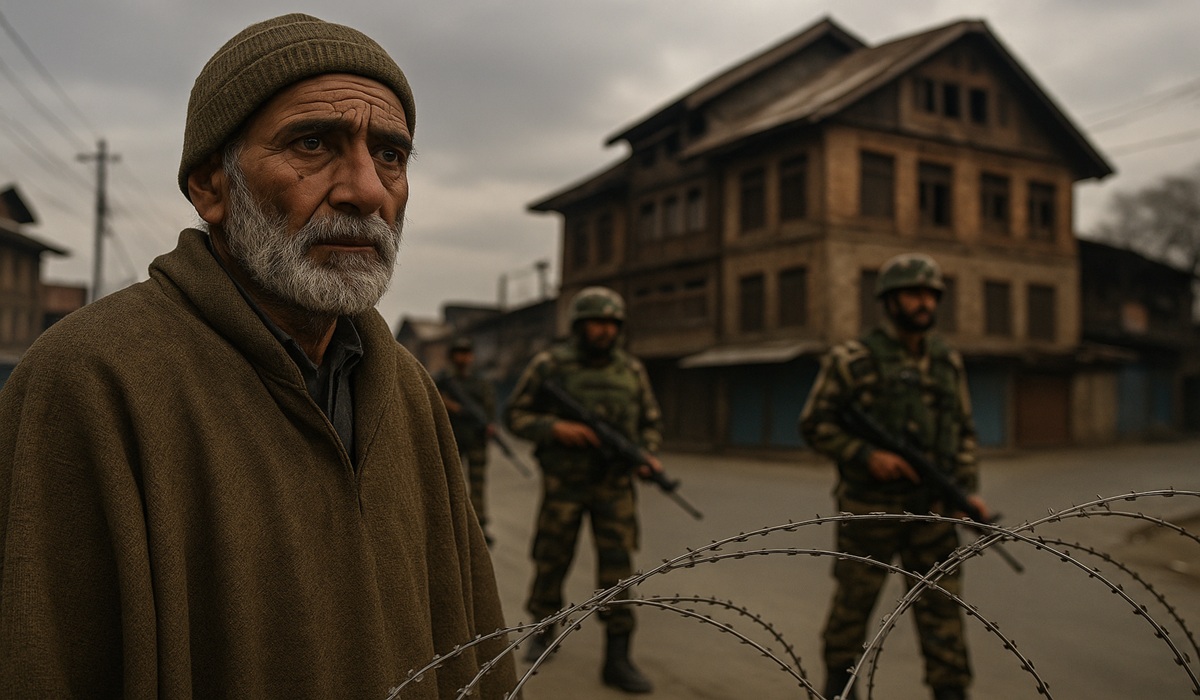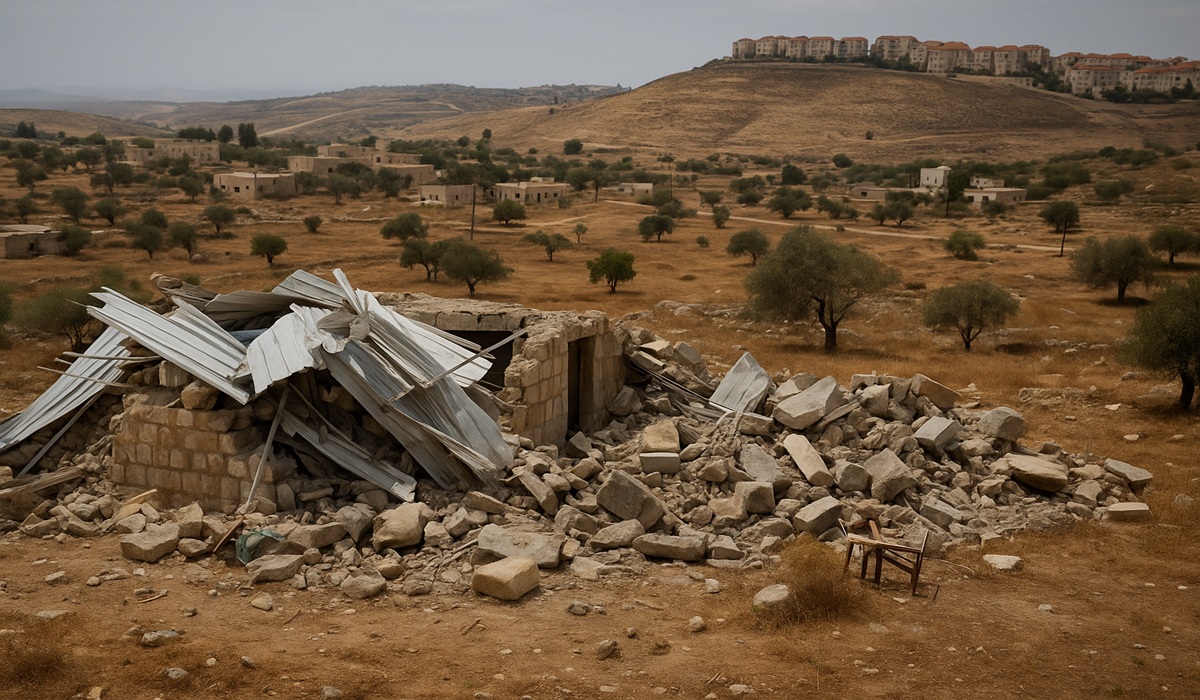Israel’s Unprecedented Attack on Qatar: A Betrayal of U.S Trust and a Test for Credibility
- TDS News
- Breaking News
- Middle East
- September 10, 2025

In the past year, the Middle East has been shaken by a disturbing reality: Israel has expanded its military reach far beyond Gaza and the West Bank, conducting operations in nine different countries. The world has watched as these strikes — justified under shifting claims of “self-defense” or “preemptive necessity” — have left devastation in their wake. Yet no single action has been as unprecedented, as reckless, or as geopolitically dangerous as Israel’s recent attack on Qatar.
This was not just another strike across a contested border. This was an assault on one of America’s closest allies in the Gulf — a country that has housed the largest U.S. military installation in the region, that has poured over a trillion dollars into investments tied to the United States, and that only months earlier rolled out the red carpet for President Donald Trump, gifting him a plane valued at more than a billion dollars as a symbol of enduring friendship.
So what does it mean when Israel, under the alleged blind eye of Washington, attacks Qatar?
According to statements from the Trump administration, the U.S. had no knowledge of the strike before it happened. American officials insist they were notified only 10 minutes after Israeli jets were already airborne and carrying out their operation. They claim such an event will “never happen again,” reaffirming Qatar’s importance as a U.S. ally and strategic partner.
“In a press conference today, the White House press secretary indicated that the U.S. military had informed Qatar that they were going to be attacked — a statement directly contradicting President Trump’s earlier claims of ignorance. This also conflicts with reports from Israel suggesting that the White House had greenlit the strike, leaving an unclear and troubling narrative about America’s role.”
But let us pause here. Does this version of events hold water?
The idea that the United States, with the most sophisticated military surveillance apparatus on Earth, did not know Israeli jets were scrambled, did not detect missiles being loaded, and did not monitor troop movements is almost impossible to accept. Every inch of the Middle East is monitored by American satellites, radar systems, and forward bases. Nothing flies in that airspace without Washington knowing about it. To suggest ignorance is not only implausible — it is insulting to the intelligence of Qatar’s leadership and people.
If America’s claim of ignorance is true, it points to a shocking lapse in U.S. military capability. If it is not true — and most experts believe it is not — then it signals something far more troubling: complicity.
The contradiction becomes even clearer when one recalls what happened earlier this year, when Iran launched missiles at Qatar in retaliation for U.S.-Israeli strikes on Iranian nuclear facilities. On that occasion, U.S. radar systems went live immediately. American interceptors shot down incoming threats with precision, protecting their bases on Qatari soil.
So why, then, did no such interception occur when Israeli jets crossed into Qatari airspace? Why were no warnings issued, no defensive systems activated, no “friendly fire” risk even acknowledged?
The answer lies not in capability but in will. America can stop attacks when it chooses to. It simply chose not to when the attacker was Israel.
What this reveals is a dangerous precedent: Israel can strike any country in the Middle East — ally or adversary — and nothing will happen, because the United States will not let anything happen. Washington shields Israel diplomatically, excuses its actions publicly, and even appears to enable its operations militarily.
This reality creates a chilling message to nations across the region: no treaty, no alliance, no investment, no gesture of goodwill will protect you if Tel Aviv decides you are expendable.
For Qatar, this is a betrayal of the highest order. The U.S. military base at Al Udeid is not just an outpost — it is the linchpin of America’s strategic presence in the Gulf, housing thousands of personnel, advanced aircraft, and command centers that oversee operations across the Middle East. To believe such a partner could be left vulnerable to an “ally’s” attack, without so much as a warning, undermines the very foundation of trust upon which these relationships are built.
Israel justifies its actions as part of the ongoing struggle following the events of October 7th, claiming every strike, every escalation, every incursion is tied to the effort to “secure its survival.” But let us be clear: bombing sovereign nations that have extended goodwill, hospitality, and strategic cooperation is not security. It is recklessness.
Qatar has long played a unique role in the Middle East. It has acted as a mediator, hosting talks between adversaries, providing humanitarian relief, and maintaining channels of communication that few other nations can manage. It has been both a partner to the West and a friend to regional actors often alienated by Washington. For Israel to bomb Qatar is not just an affront to Qatari sovereignty — it is an attack on the very possibility of peace in the region.
And America’s silence, its feigned ignorance, makes it complicit.
For the United States, this episode raises an existential question about its role in the world. Is America a global leader striving for stability, balance, and peace? Or is it an enabler of endless war, willing to let its closest allies be humiliated and endangered so long as Israel’s ambitions are unchecked?
The diplomatic language coming out of Washington may attempt to soothe, to reassure Qatar that this was an “exception” and will “never happen again.” But allies notice patterns, not excuses. And the pattern is clear: time and again, Israel acts with impunity, and America protects it from consequences.
This is not leadership. This is abdication.
What must happen now is more than polite reassurances. The Qatari government, and indeed all nations of the Middle East, must demand accountability. To accept America’s story at face value is to accept being treated as expendable.
Diplomatic channels must be leveraged, international forums engaged, and serious questions posed:
- Why did American defenses not activate against Israeli jets and missiles?
- What intelligence was shared, when, and with whom?
- What guarantees exist that this will not happen again — and how can they be trusted after such a breach?
Anything less is a betrayal of Qatar’s sovereignty and a dismissal of the risks it took to ally itself so closely with the United States.
Finally, the world must reject the false pretense that all of this stems inevitably and exclusively from October 7th. The taking of hostages that day was a tragedy, and every effort should be made to see them returned. But to believe that their return will end the horrific atrocities being carried out in Gaza, or the reckless expansion of Israeli aggression beyond its borders, is naïve at best and deceitful at worst.
This is no longer about hostages. This is about power, about control, about Israel’s conviction that it can do anything, anywhere, with impunity — and America’s willingness to let it.
The attack on Qatar is more than just another strike in a region accustomed to conflict. It is a line crossed. It is a betrayal of trust between allies. It is a signal to the world that America’s word, its partnerships, its alliances, mean little when Israel decides to act.
Qatar deserves more than excuses. It deserves accountability, respect, and tangible guarantees of protection. The United States must decide whether it wishes to remain a credible partner in the region or resign itself to being seen as Israel’s shield, no matter the cost.
Because make no mistake: if Israel can bomb Qatar today without consequence, then no country in the Middle East is safe tomorrow. And if America allows that, it is not simply complicit — it is culpable.








